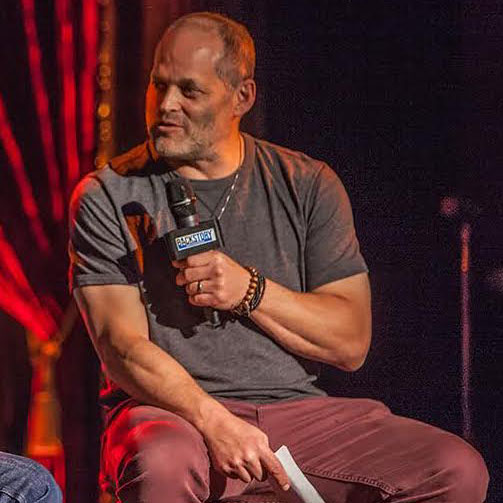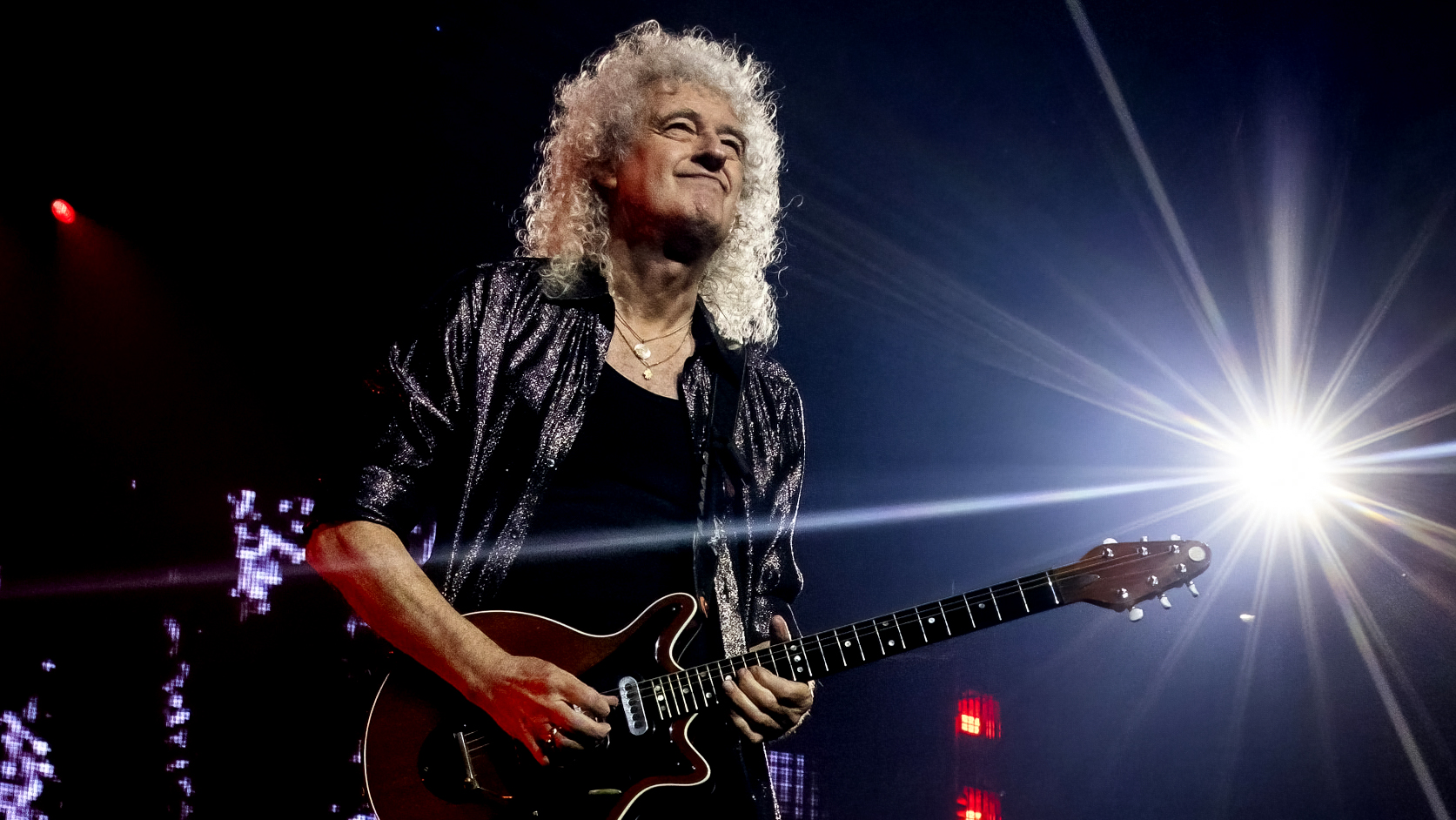“He said, ‘I want to make a little-amp record.’ Apparently on Layla, Eric Clapton and Duane Allman were playing through Champs and facing each other, and that’s what we did”: Charlie Starr on how Blackberry Smoke evolved by slimming down in the studio
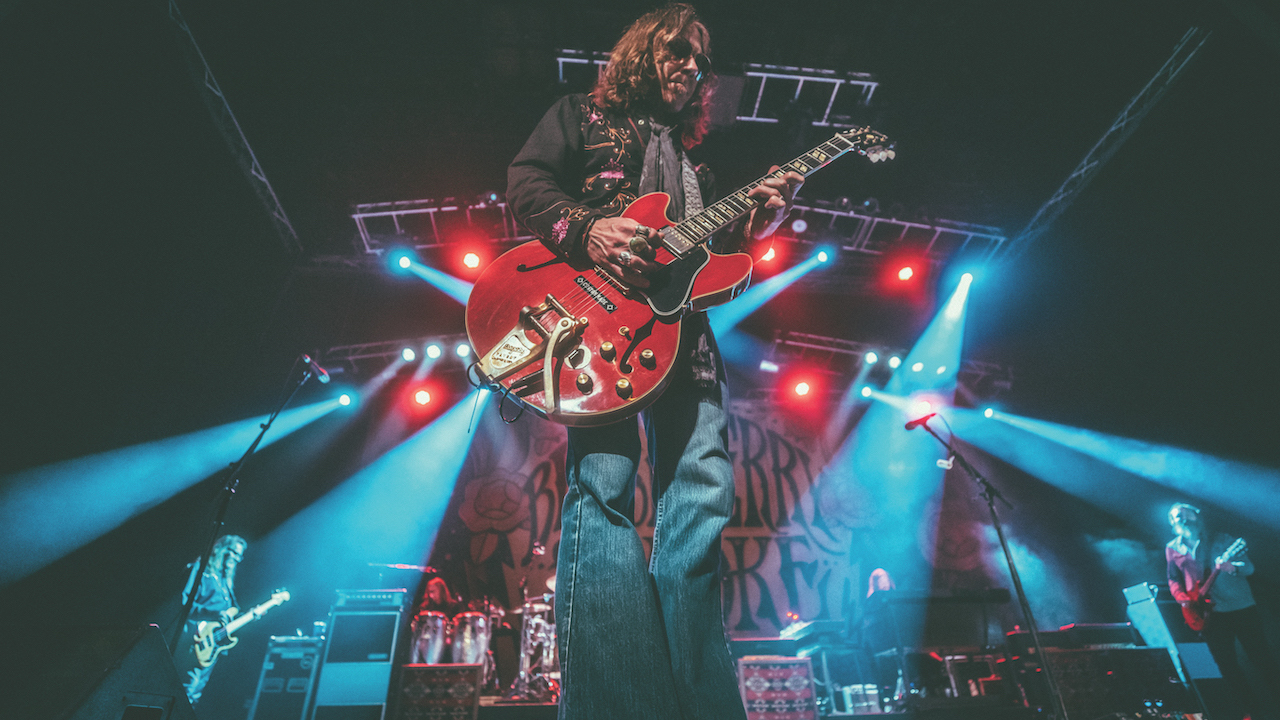
As Blackberry Smoke recorded their eighth studio album, Be Right Here, the sessions developed a greater sense of gravity and intensity. The cause? Drummer Brit Turner was battling brain cancer. But as guitarist Charlie Starr says, Turner’s illness had the effect of making the sessions at Nashville’s famed RCA Studio A more fun and memorable.
“It was so good for us to be making music with Brit as he was undergoing treatment,” Starr says. “I think that whole thing really brought us closer, just knowing that one of our brothers needed love and support. I think it gave the record some urgency.”
The band “always records live,” Starr says, but usually with the drummer in a different room. In this case, however, producer Dave Cobb pushed them to use smaller amps, which allowed everyone to play together in one room, and that ended up being a key decision.
“You can’t work that way in every studio, but RCA A is large enough and there’s enough room to spread out and not bleed into each other’s mics,” Starr says. “And though that wasn’t the intent, it made a big difference to stand there and watch Brit play.”
In addition to Starr and Turner, Blackberry Smoke includes Brit’s brother Richard on bass, percussionist Preston Holcomb, keyboardist Brandon Still, and guitarists Paul Jackson and Benji Shanks. The band uses the three guitars with notable technique and restraint, creating weaving lines and textures that enhance and undergird the songs without overwhelming them. We caught up with Starr to discuss Be Right Here and the current state of all things Blackberry.
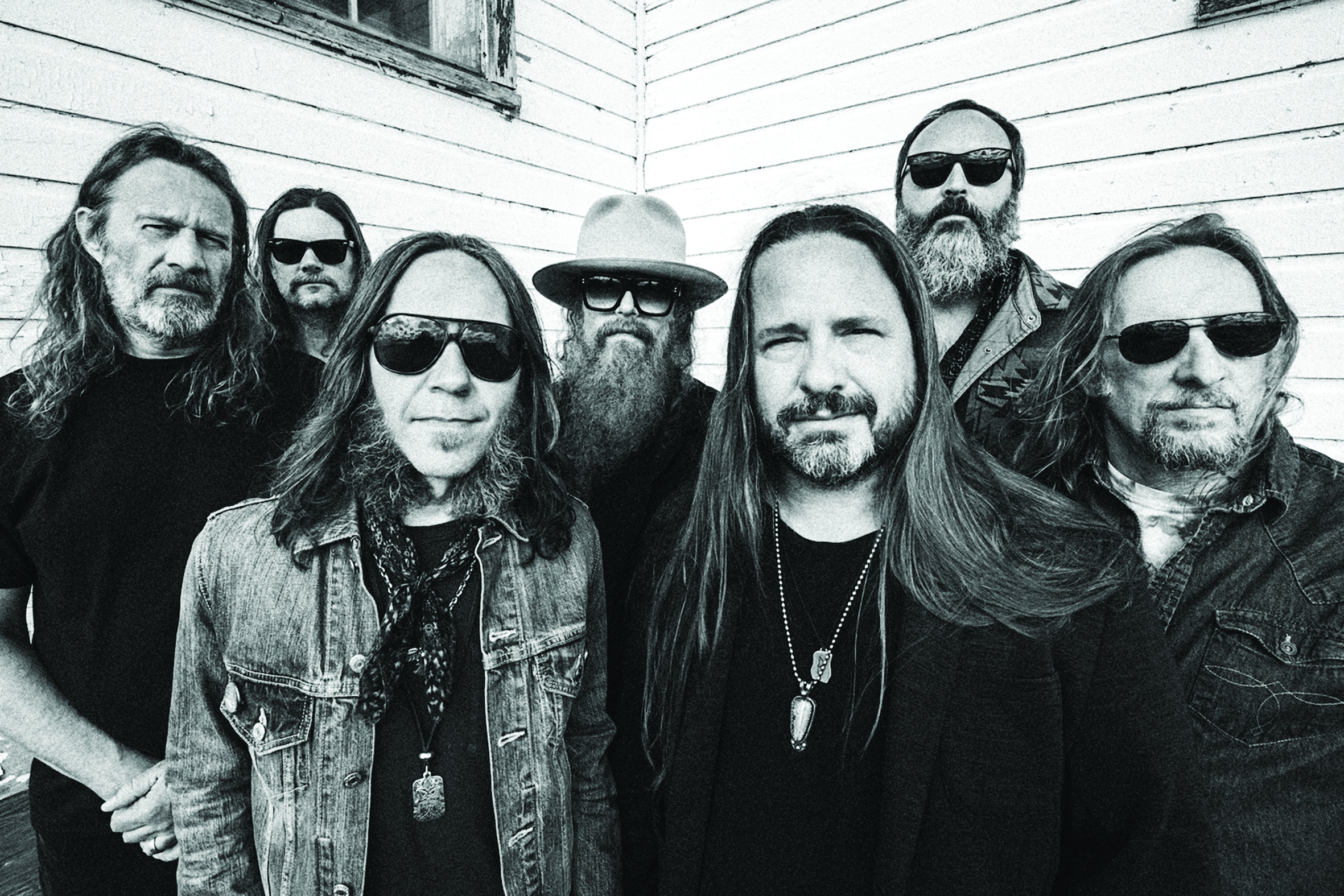
You guys have a pair of brothers in Brit and Richard, but the band has been together for over 20 years now, an admirably long run that kind of makes you all brothers.
“We formed in 2001, but I started playing with Britt and Richard in ’97 in Buffalo Nickel, which was the band of the excellent singer/songwriter Gary Stier. That was more or less Americana music, and as we were all getting ready to move on, I realized that we have a special wobble together. It was as simple as saying, ‘I like the way my guitar sounds with your drums and bass,’ and we all agreed and wanted to try and do something together.
All the latest guitar news, interviews, lessons, reviews, deals and more, direct to your inbox!
“My songs were based around more muscular riffs – I guess you could call it Southern rock – than what we were doing in Buffalo Nickel, and we all wanted to see where we could take them.”
Life on the road and in the grind can wear people down and create tensions. Do you think that having such steady membership has helped you forge a brotherhood that helps keep things nice and stable?
“Yeah, I think so. When you reach a certain point, there’s a comfort level and a joint sense of purpose that comes without taking anything for granted. We did three pretty long tours with ZZ Top over the years, and I would watch Billy and Dusty interact before they walked out onstage, when Frank was already at his kit. Once I saw Billy put his arm around Dusty and felt so honored to see that: ‘Look at them go after 50 years together!’”
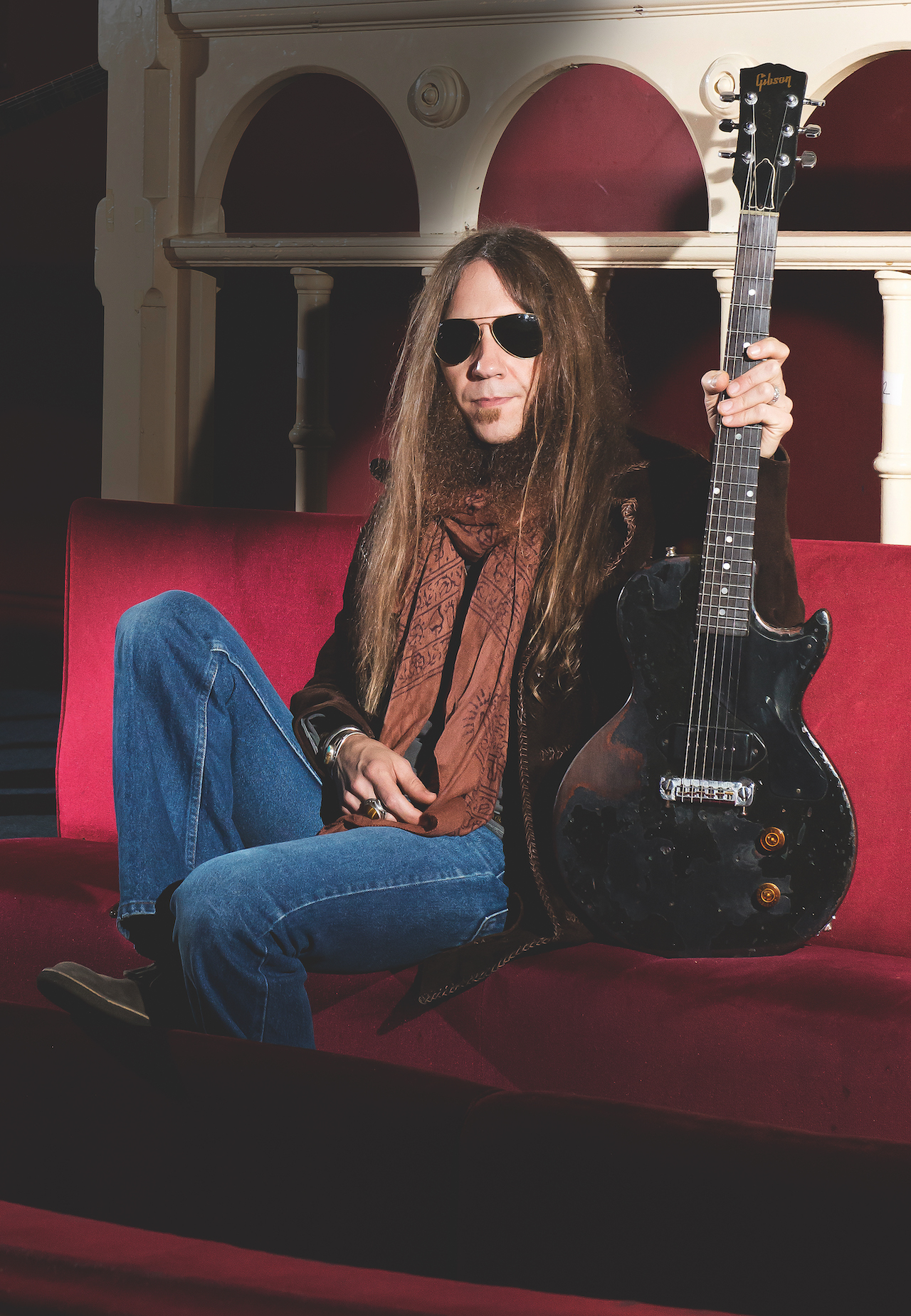
You’ve seen a lot of your heroes up close. Have you had other similar experiences?
“Oh sure. I also always appreciated the Skynyrd experience and the way that they carried on the music after going through so much tragedy. And the Allman Brothers, too, who found ways to carry on. Toward the end, the Warren/Derek band had so much respect for the music and legacy, and it showed in the way they carried themselves and played. It was just real and tangible, and it’s something that is going to live on.
“There will always be people who say ‘they shouldn’t continue after so-and-so died’ but people want to hear those songs and live in that music, and it can be done respectfully and with integrity.”
How is Brit doing? Did his medical problems give you a greater appreciation of the band and playing together?
“He’s doing great. It put a magnifying glass on everything: the way we interacted, the moods we were in, the way we played. It felt special to me. I was really focused on the way that we turned the corner musically. The band that you’re in has such a fingerprint. You never know that so clearly as when you play with somebody else. I was kind of just soaking it up – enjoying our fingerprint and making music together.
“Mortality is such a real thing, and when you’re forced to experience it up close it makes things just a little more precious.”
This is your second album with Dave Cobb producing. Other than the live-in-one-room thing, how did he impact the music?
“When I was working on the material and had written 15 or 16 songs, Dave gave me specific instructions. He said, ‘I want to make a little-amp record and record with Champs and Princetons.’ And doing so changed a lot. We built a little wall of amplifiers and then we went through and chose amps for each song.
“Apparently the Layla record was the same – Eric Clapton and Duane Allman were playing through Champs and facing each other, and that’s what we did. The little amps just have a cool voice. You can hear the paper in the cones moving, and the sound and the setup really made a difference to my singing.
“Dave Cobb is really involved, even sitting in there with a shaker sometimes. And he’s an analog guy. His method is completely organic, and he wanted that to extend to our approach. He wanted for the album to be brand new, not rehearsed. He asked me not to show the other guys the songs, though it was already too late for some.
“We’ve always been a band that’s rehearsed and ready to go in the studio. It’s just being prepared, because studio time is expensive. I can’t imagine making an entire record this way. It feels like something spoiled rich people do!”
Can you point out a song that really changed because of this approach?
“Barefoot Angel, the last song on the record. [Singer-songwriter] Adam Hood and I wrote it on acoustic guitars, and it was one of the ones that the band didn’t know. We all got in a circle, and I knelt down and played the song. Dave said, ‘It needs to be big, not as much a ballad.’ And it grew legs when we put on harmony guitars and I wrote those parts on the spot. It found its arrangement as a big song.”
A lot of your songs are based around big riffs. Do they come first, or do you write on acoustic and then compose them?
“It’s usually riff first, and it might just happen at soundcheck or something. Sometimes it starts with a melody and chord structure, but being a guitar player first and foremost, I find most of them come from the riff.”
So you feel like guitar comes first, not singing or songwriting or bandleading?
“I do. It’s what I love most. It’s not that I don’t get joy from singing, because I do. It’s also a form of self-expression, and the songs need to be sung, but there are times where I think, ‘I don’t feel like singing today,’ but never, ‘I’m tired; I can’t play guitar today.’ Never. That’s always there and always a joy.”
Do you think you could have been happy as the lead guitar player in someone else’s band?
“I do! I think I could have been just as happy.
“I went out and did a month as guitarist in the Black Crowes to help them out, and it was extremely enjoyable. They are one of my favorite bands, but while I knew the songs I had to really master, it was the first time that I had sit down and learn a lot of songs. It was a good exercise. But as much as I enjoyed that whole experience, when we came back and played a Blackberry show, I thought, ‘This is my true home. This is where I’m meant to be.’”
I really enjoy your acoustic playing as well. You don’t play it like an electric guy, if you know what I mean.
“I do. And thank you! My dad is a hobby bluegrass player, and that’s where the bug comes from. Listening to him sing and play instilled the desire in me. As soon as my hands got big enough to play a chord, I asked him to teach me some, and I never truly looked back.”
You immediately knew guitar was it?
“I think I really did. I just knew that music was my thing. I wasn’t good at sports or other things, but I could make a tune. I was six when he gave me my first guitar, and I got an electric guitar when I was 11, but my dad wasn’t interested in that. A lot of those old guys fall in love with bluegrass, and they want it one way and one way only. I love that about him.”
He may not relate to your music, but I bet he’s proud of you.
“He is very proud, and he lets me know it. He was so excited when we recorded with George Jones and when he saw a clip of me and Billy Strings at the Ryman [in Nashville]. Billy and I met on Instagram during lockdown and he asked me for Jimmy Herring’s phone number, which I shared. He said, ‘I love Jimmy so much. He’s a Jedi.’ We agreed on that!
“I invited him to sit in when we did a livestream in an empty Ryman. We did I’m Here to Get My Baby Out of Jail as a duo and he played electric on the Dead’s Mississippi Uptown Half Step Toodeloo. He’s an exceptionally special musician, the kind who comes around once in a blue moon, and you don’t have to be a musician to experience what he’s doing. He’s got the magnetism of a troubadour who can transcend genre.”
It’s cool that you did Mississippi Half Step. What is your relationship to the Dead’s music?
“I love it. I find it to be extremely American, for lack of a better term. They were a melting point of American music: gospel, blues, jazz, folk, country… and the Celtic folk song murder ballads that were so important to country.
“I didn’t really get into this until about 15 years ago, but it’s a rich vein. We also did a session with Bob Weir at his TRI Studios, which we put out as a DVD. We used little amps there, too. Bob said, ‘I don’t want it to be loud,’ and it was an amazing experience.”
Blackberry Smoke’s guitar trio share the gear behind Be Right Here
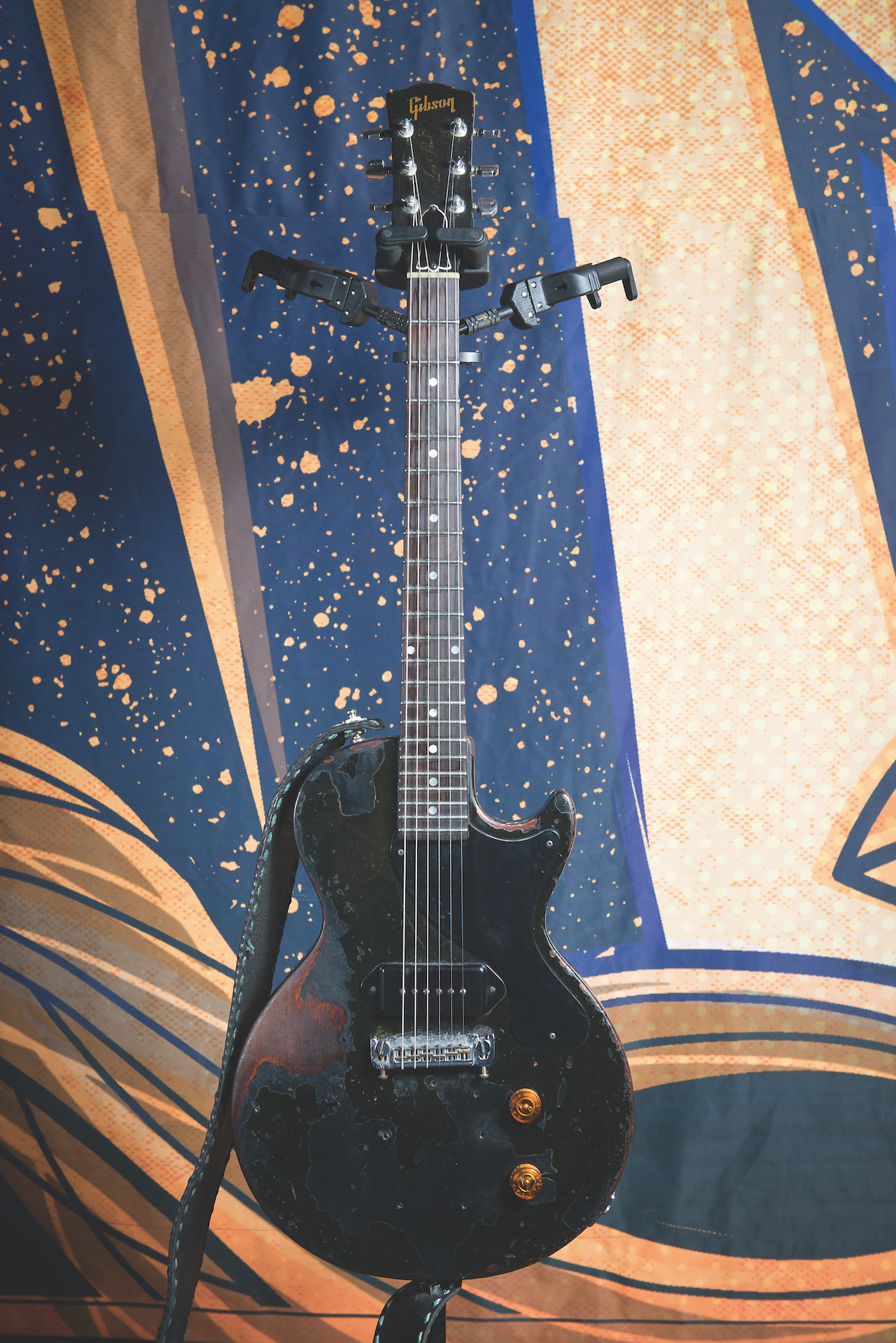
Charlie Starr
GUITARS: 1964 Gibson ES-335, 1964 Gibson ES-330, 1958 Fender Telecaster, 1963 Fender Esquire, 1962 Fender Esquire Custom, 1956 Gibson Les Paul Junior, 1958 Gibson LP Junior, 1967 Rickenbacker Rose Morris 330, 1950 Martin D-28, 1952 Martin D-18, 1955 Gibson J-45
AMPS: 1965 Fender Champ, early ’60s Magnatone Troubadour, early ’60s Supro Super, late-’60s Vox Defiant, Leslie cabinet
EFFECTS: ’90s Menatone Red Snapper, ’70s Echoplex EP-3, Analogman King of Tone, Analogman SunFace, Klon KTR
Benji Shanks
GUITARS: 1960 Gibson Les Paul Junior, 1955 Fender Strat, 1965 Gibson Firebird III, 1967 Gibson ES-125, Gibson Les Paul R9 (Historic Makeovers), Gibson goldtop F-5 mandolin
AMPS: 1965 Fender Vibro Champ
EFFECTS: Cry Baby wah, Klon Centaur silver, MXR Phase 45 and Phase 100, Echoplex EP-3, Fulltone Supa-Trem, Analogman Astro Tone fuzz, Kendrick tube reverb
Paul Jackson
GUITARS: 1979 Gibson Les Paul Standard, 1958 Gibson ES-335, 1979 Gibson ES-335, 1991 Gibson 40th Anniversary LP
AMPS: ’60s Gibson GA-6 Lancer, ’50s Rickenbacker M-11, 1965 Fender Vibro Champ
Alan Paul is the author of three books, Texas Flood: The Inside Story of Stevie Ray Vaughan, One Way Way Out: The Inside Story of the Allman Brothers Band – which were both New York Times bestsellers – and Big in China: My Unlikely Adventures Raising a Family, Playing the Blues and Becoming a Star in Beijing, a memoir about raising a family in Beijing and forming a Chinese blues band that toured the nation. He’s been associated with Guitar World for 30 years, serving as Managing Editor from 1991-96. He plays in two bands: Big in China and Friends of the Brothers, with Guitar World’s Andy Aledort.
